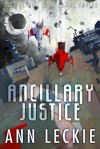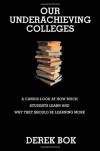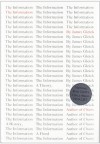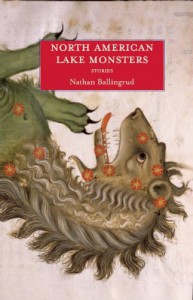Currently reading
McGlue
Knife Fight and Other Struggles
Far from the Tree: Parents, Children, and the Search for Identity
The Good Lord Bird
Ancillary Justice
Our Underachieving Colleges: A Candid Look at How Much Students Learn and Why They Should Be Learning More (New Edition)
Dissident Gardens
Nightmare Movies: Horror on Screen Since the 1960s
The Information: A History, a Theory, a Flood
Complete Novels
 4.5 stars! It is a testament to the power of these stories that as each ended I'd let out a little murmur of disappointment, wishing for more, rapt with the characters and contexts.
4.5 stars! It is a testament to the power of these stories that as each ended I'd let out a little murmur of disappointment, wishing for more, rapt with the characters and contexts.I'm late to the party. But Lee is amazing.
 I read this some years ago. I'd thought Martin and John fairly interesting. This novel wasn't.*. And around this time Peck began writing savage reviews--later collected as Hatchet Jobs--in a manner that seemed to me kind of dully vicious. (I actually enjoy viciousness. And niceness. As long as they're incisive, or challenging, or well-written. I would read a book called "Scalpel Work.". Hatchets aren't known for their precision. Neither is Peck.). Dull is a good qualifier for this novel, too.
I read this some years ago. I'd thought Martin and John fairly interesting. This novel wasn't.*. And around this time Peck began writing savage reviews--later collected as Hatchet Jobs--in a manner that seemed to me kind of dully vicious. (I actually enjoy viciousness. And niceness. As long as they're incisive, or challenging, or well-written. I would read a book called "Scalpel Work.". Hatchets aren't known for their precision. Neither is Peck.). Dull is a good qualifier for this novel, too.This essay by Jen Doll at The Atlantic is excellent, and a useful historical context for the current Goodreads kerfuffle. The essay was prompted by a flare-up at Amazon over a review of a novel by Emily Giffin that received an angry counter-review/attack by the author's husband, which then led to a review arguing that this other reviewer won't read Giffin's books any more because of that attack....and then that "author-based" review got removed from Amazon. Doll also links to a Slate article lamenting the niceness of the new review culture.
The essay examines how social media is altering the landscape of reviews, and makes the point that meanness and "niceness" are a bit different, but not a strange new phenomenon in reviewing, online. Dale Peck, who was a complete dick in his reviews, is merely one example in a long illustrious history of reviewing savagery. What's really new, to my mind, is the monetization of reviews. If Michiko Kakutani or Dale Peck rip you a new one, you could savage others or try to attack the venue and the injustice of major reviewers... but if you're on a website focused on building traffic to drive profitability, you can go after reviewers and play the refs, and that shit gets taken care of.
*Obligatory reference to this book under review.
 A great read. That makes three in a row for Buehlman. And each novel quite different from the others. I haven't read the new Stephen King, but I am betting this is the best Halloween gift going.
A great read. That makes three in a row for Buehlman. And each novel quite different from the others. I haven't read the new Stephen King, but I am betting this is the best Halloween gift going. Full review at Bookgasm--
Earlier this year I struggled mightily with a misfire of a novel that mashed up high-falutin’ fabulism, a romantic farce, Cold War shenanigans and Russian folklore centered around the witch Baba Yaga. Praise be ambition: As much as I dig celebrations of the tried-and-true in genre fiction, I’m equally keen to see a talented writer rip up the playbook and reinvigorate our sense of what horror and dark fantasy can do.
That said, the book I’m talking about? Yeah, it was heavy lifting. The mash-up was mere mishmash, the book sold on its own slick whimsy. A dud. A whole lot of gunpowder and no spark.
So imagine my anxiety when another novel comes along with Baba Yaga and her chicken-legged house stomping about new territories. Christopher Buehlman’s THE NECROMANCER’S HOUSE is set in present-day upstate New York, The story takes another adult spin on magic integrated into the muggle world, stitches in mythologies from various cultures (Russian and Slavic folklore, this hemisphere’s Voodoo roots), and traces analogies to the new myth-magic of hacking and cybernetics.
Oh, and there’s a sexually mismatched romantic entanglement at the core. And a fair bit of engagement with the impact of addictions (and AA founder Bill Wilson has a small but substantive cameo). And a dead dog’s spirit is reincarnated with a wicker torso, prosthetic legs and a Salvador Dali painting as its head.
So, yeah. There’s a lot going on here, too.
And Buehlman nails it.
Read the reat of the review at http://www.bookgasm.com/reviews/horror/the-necromancers-house/....
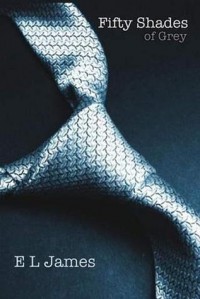 My son's fifth-grade bookclub selected this for the back-to-school Everyone Reads! I'm so excited to see young boys reading!
My son's fifth-grade bookclub selected this for the back-to-school Everyone Reads! I'm so excited to see young boys reading!I am advised that this book is quite naughty. I'm very angry with the boys for playing the system.
 2
2
 1
1
Getting Past Coetzee
 A solid if slight essay about loving an author who thrives in the oblique but is embraced (now) by the academy. Twidle crystallizes some of the paradoxes, parodies some of the somber Import, reveals and criticizes and collages.
A solid if slight essay about loving an author who thrives in the oblique but is embraced (now) by the academy. Twidle crystallizes some of the paradoxes, parodies some of the somber Import, reveals and criticizes and collages.For the fan more than the newbie. For those unfamiliar with Coetzee, hey what: read him.
 Full review at Bookgasm:
Full review at Bookgasm:Relatively early in SAVAGE SPECIES, Jonathan Janz’s glorious, gore-ious celebration of the sleazy, straight-to-video creature features of yesteryear, an illicit campground kegger is overrun by vicious, supersized, intelligent hominids intent on devouring (after dismembering) everyone they meet. A ragtag team of survivors struggles to escape, but the beasts in hot pursuit are picking stragglers off, one by one.
As one survivor glances back through the rear window of their pickup, he sees that one creature “stood in the truck bed with a long-toed foot fixed on [an unlucky victim's] upside-down crotch. It was tugging on the skin of the man’s legs as though trying to free him from a pesky pair of tight pants.”
The vivid, sly style of that excerpt is characteristic of Janz’s mayhem. Even as he embraces all kinds of cartoonish types and the minimal cliches of the central plot, even as the novel in summary can seem like the cheesiest kind of boilerplate genre pablum, the guy never met a sentence that he didn’t find a way to goose. There’s a real delight in the writing that complements his obvious delight in the familiar tropes and tricks of the story. (Janz also sidesteps — or mostly sidesteps — all forms of hipster-winking or ain’t-this-naughty ironic genre revisionism. For this alone, he deserves a deep bow from genre fans.)
That all said, let’s be clear what the purpose is. Right after the clever fussiness of the pants image, Janz has “the creature … ripping off gobbets of [flesh] as it yanked, chewing the pink stuff like a lion at a fresh kill.” SAVAGE SPECIES is relentlessly focused on the blood and guts. The violence doesn’t take long to appear, and then the novel is one frenetic setpiece of hyperbolic grotesquerie after another.
Full review at Bookgasm
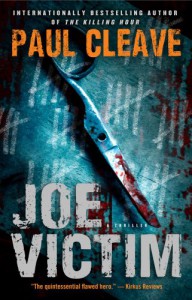 Full review at http://www.bookgasm.com/reviews/thrillers/joe-victim/--
Full review at http://www.bookgasm.com/reviews/thrillers/joe-victim/--Joe Middleton sits in prison, strategizing about how he’s going to get off scot-free at his impending trial and evade the hangman. He claims no memory of the multiple murders he’s accused of; however, he also takes no particular pains to keep his stories straight, or to maintain the masquerade for various individuals.
In fact, Joe’s as likely to let his mind wander as to work through a nefarious escape plan. Even in dreams, he’ll lose sight of the endgame. In one nightmare, he’s wearing a ski mask and “dripping with sweat,” in advance of some brutal mischief. But the mask’s itchiness makes him ponder this “strange invention”:
I’ve never seen people on TV, at the Olympics, or in movies wearing ski masks covering their faces when they ski. They have woolen hats and thick jackets and gogglelike sunglasses, but they don’t look like bank robbers. Really they should be renamed robbery masks. Or rapists masks.
A short while later, he gets back to business in the dream, running into his mother in the kitchen, whereafter he lets his “knife do the talking.” In another moment of daydreaming, he envisions what he’d be like as a dad, “teach[ing a son] to fish, to throw a ball, to use a hooker and not pay.”
Joe is a bad, bad man. He is also a whining, narcissistic, scheming schmuck somewhat convinced that people really love him. They don’t.
The vast majority of other characters in Paul Cleave’s vicious, twisty carnival ride titled JOE VICTIM actually want to see Joe at the end of that rope, on the pointy end of a shank or writhing in pain after being gutshot. Such characters include the cop who caught him (now disgraced and working for a shifty television psychic), a former lover and fellow homicidal sociopath named Melissa, a grieving widower whose daughter was one of Joe’s (many) victims, and so on. It is to Cleave’s credit that readers will spend much of their reading time (racing through the pages, anxiously biting their nails) wondering if — hoping that — Joe will evade the many homicidal forces bearing down on him.
On the other hand, it’s not likely we’ll end up loving him. Joe’s wickedly funny, but maybe not always on purpose, and he is, well …. plain wicked. We’ve grown accustomed to snappy one-liners from serial killers, but there are no DEXTER-y ethics to balance the protagonist’s predilections. Joe has killed a number of women, and looks forward to killing just about everyone he meets. There’s no sidestepping the horrors on display. More often, as in a nausea-inducing bit of revenge foisted upon Joe, there’s an unabashedly intense focus on such horrors.
But Cleave seems to take a particular twisted delight in the nastiness of all involved, and JOE VICTIM always wears a prankish smirk. I’m tempted to call it comic — it even ends at a wedding. Yet if farce, it’s a bloody one, and Cleave plots with a masterful deviousness, juggling all sorts of sneaky shifts in our expectations and maintaining a constant suspense.
The plot doesn’t bear up against much scrutiny; this is neither a careful procedural nor a nuanced psychological exploration. (It took me a few pages to stop grumpily wondering why Joe’s half-assed performance as “Slow Joe” fooled anyone.) But if you can sidestep the skeptical murmurs of the Plausibles or the plaintive cries of your superego, you’ll have a blast.
While officially a sequel — it begins at the moment of Joe’s capture (and failed suicide), the tail end of THE CLEANER (published in New Zealand and elsewhere in 2006) — readers can jump right in and relish the novel as a stand-alone.
 Full review at Bookgasm:
Full review at Bookgasm:A few short sentences form the first chapter of David Nickle’s slow-burner of a ghost story. The protagonist, Ann, muses that terror and love always seemed “indistinguishable” to her.
Then we switch gears to a rather dull first date, a very gray-flannel man wooing her over dinner. Michael’s not quite the milquetoast he seems, but then she’s not so much a mouse, either. Objects on the table begin spinning without cause, and Ann rushes off to the restroom, trying to shake off the fear, while Michael sits rapt at the table.
As we learn through the next half of the novel, in a devious, wonderfully dread-inducing series of flashbacks and forward motion, Ann is afflicted with a longtime companion: a violent poltergeist who’s raised hell whenever she becomes too intimate with anyone. That, alas, is exactly what Michael (and a mysterious cadre of men behind him) is seeking: intimacy at the edge of terror and death.
To say too much more would undermine two of THE ’GEISTERS’ serious pleasures. As in the best ghost stories, its haunting teases from the corner of the frame, finally shuffling on to center stage after the bumps and shrieks and whispers have the reader shivering in delicious uncertainty — not knowing what’s happening, but dead sure that it’ll be terrible.
And then (serious pleasure number two) the reveal is quite unlike most any ghost story I’ve ever read, and where Nickle travels next is new territory. (There are hints of Stephen King and David Cronenberg, and an explicit hat tip to Shirley Jackson for the spirit’s deep-seated roots in psychosexual dysfunction … but Nickle helps us see these conventions anew.)
Certain core obsessions — both his characters’ and the author’s — recur throughout Nickle’s fiction. The title of his excellent story collection, MONSTROUS AFFECTIONS, sums things up precisely. His horror plants a flag at the intersection between what we desire and what repels. The unnerving cover of that book was, according to Internet gossip, the subject of customer complaints at an airport bookstore. (They demanded that the book with its portrait of a melon-headed, Muppety-mouthed man be taken off the shelves and hidden. They couldn’t stop staring at that blank face.) Yet the stories, like that picture, seem deceptively harmless. Nickle’s a master in rebranding (or revealing) the bland as strangely perverse.
And, as any horror reader will freely admit, there’s a delirious, visceral thrill in — and desire for — that rush of fear. Nickle consistently returns to desire as a dangerous force, as a form of terror. The desire to control deforms (in the mind-controlling geopolitical conspiracies of RASPUTIN’S BASTARDS, or the quest for the perfection of the species in EUTOPIA). Or, put another way, desire deforms — explodes — any attempt to control. Or, maybe, deep down, if we really pay attention, desire itself is always deeply strange, unnerving, spooky.
This novel returns to but amplifies those rich thematic obsessions. However, even if you step away from the lit-nerd’s noodling with this “deep” stuff and just strap in for the ride, THE ’GEISTERS is a gas. There are set pieces in a car and a plane and a motel room that have a Hitchockian flair for suspense. (Interestingly, where most ghost stories fixate on a specific physical location, by shifting the locus of the ghostly into the body of the protagonist, each space Ann enters is freshly reborn as a haunted house.)
The book doesn’t just explore the attractiveness of terror — it embodies it in a narrative that demands (excites even as it repels) your attention. It’s a(nother) strong novel by one of the best, most interesting horror writers working today.
 I thought this was ok (therefore, 2 stars), felt it "was like jogging through heavy cream" (see review at Bookgasm.
I thought this was ok (therefore, 2 stars), felt it "was like jogging through heavy cream" (see review at Bookgasm.But I clearly see how other readers, with other tastes, will lap it up. Check out
my friend Kathrina's more generous, smart take.
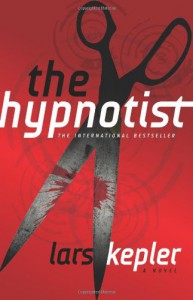 I tried this once before, and got nowhere slowly -- the library clock ticked down and I just returned this.
I tried this once before, and got nowhere slowly -- the library clock ticked down and I just returned this.My father noted how much he'd liked a later book in the series, so I trudged to the library and re-set the clock on this (first) one. . .
and ding.
I'm hesitant to put this all on the book, as II could not get any handle on it. But the breathless but bland staccato of the prose and plotting -- meant to propel the reader anxiously along, needing to learn more -- worked on me like a metronome, lulling me into a kind of readerly stasis: I'd sit and stare at a page for five minutes.
Meh.
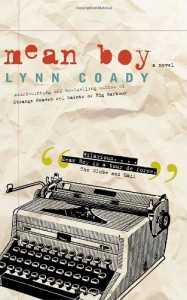 You know, why bother with an academic satire--the misbehavior, the sauce, the preening display of tattered plumage evident in many tintype empires but so extravagantly exaggerated in departmental battles, the oppressive gender politics or commentary on oppressive gender politics, did I mention egos?: egos--why bother, again? Kingsley Amis nailed it, and no satire's been so sharp since. He dulled all the other knives.
You know, why bother with an academic satire--the misbehavior, the sauce, the preening display of tattered plumage evident in many tintype empires but so extravagantly exaggerated in departmental battles, the oppressive gender politics or commentary on oppressive gender politics, did I mention egos?: egos--why bother, again? Kingsley Amis nailed it, and no satire's been so sharp since. He dulled all the other knives.But then Richard Russo, seeming to echo Amis, actually wrote a comedy--tough, biting, but also generous: a corrosive compassion for his pomo polemicists and wannabe novelists and smalltown monographers. Russo's funnier, and more humane, and don't tell anyone but maybe I like it even better than Amis.
But, hell, I teach and work in a small college. Every day I'm lucky, Jim. Who needs another novel when each new day my own fresh satire?
But then I read, and adored, Lynn Coady's most recent novel, The Antagonist, and wandered around ABEbooks to find a copy of an earlier novel, most of which seem out of print in the states. And Mean Boy was the first to arrive.
And it is familiar. There's no getting around the olde story of the aspiring poet from the hinterlands, trying to please a literary Idol with the clay feet and the emotional hoop-de-doo and the alky shenanigans and the.... And the local politics. And the ...
You know, it all doesn't matter. Coady's as good as Russo. The book is bitter when you expect a smooth sentiment, and sweet when derision seems the obvious tack, and smart, and goddamned funny. And it was a delight to see the outlines of the later novel's "antagonist," Rank here prefigured in the outsized and wonderful Charles Slaughter, who teaches some peers who've displeased him a lesson by taking a dump in their coffeepot and setting it on the stove. And whose revealed pain is enormously affecting, even 'though I knew it was coming.
Affecting is maybe a good word for Coady's fiction. Far from affected, and rigorous in boiling away any pathos. But I felt for, even when most vigorously laughing at, these people. She sees them, shows them. Characters have conventional arcs but idiosyncratic voices. Throwaway bits--the fucking hippies at the local hotel, the viciousness of grandma Lydia, the pointless quotation marks in local advertising that drive Larry up the wall--made me laugh every other page. Larry's central voice, that insufferable ignorance of the adolescent artist, actually matures over the course of the novel. No epiphany. He doesn't learn something. Yet Coady captures, conveys subtly that slow evolution from cheese-eating high-school boy (to quote a Canadian band) to some kind of adulthood--the kind I still have (on good days): still prone to dipshittery, still trapped in shallow needs, still confounded by others. But paying attention to those others.
Maybe it's not "affecting": Coady makes me pay attention to people. She's a helluva writer and I have a huge crush. Where's the next book?
 A sample:
A sample: As the shadows from the fire danced on the trees, I did my funny cowboy dance and hit my head on a tree.
"Those bees are harmless now," said the guy, "but if anything ever happened to those wooden boxes, Katy bar the door." I laughed. I know someone named Katy.
Back at the boat, I changed out of my dirty clothes. I put on my tight, skimpy swimsuit and a clean T-shirt, the one that says I'm With Stupid. Also a fresh underpants beret. I lit up a cigar from the severed head of the comedian. It felt good to be civilized again.
Forget that the text of this book could fit on the back of seven or eight napkins, which would be more than enough to clean up a good-sized spill. In fact, it's probably a good thing this isn't on those napkins. My wife is always complaining about my "clumsiness" and "spills" and "drinking all day long," so I'm not going to look a gift horse in the mouth.
This book is full of left turns and sideways absurdities, almost every sentence finding a sneaky way to squirm away from expectations. And there's maybe 150, 160 sentences, so you're gonna get your squirm quota, no worries. I laughed often, which made my wife pipe up again with her "advice," but I refuse to be cowed. I really like alcohol. There is nothing wrong with that. You don't see me complaining about all the crying, do you? Emotions are so subjective. And this book is pretty good, too.
 I'd lean higher, maybe--this was phenomenal. The novel zips; the prose is knotty, carefully-crafted, witty. E.g.,
I'd lean higher, maybe--this was phenomenal. The novel zips; the prose is knotty, carefully-crafted, witty. E.g., describing a late-night excursion to a sandwich shop in Germany, an employee playing music from an old touch-wheel iPod: A staccato riff from the speakers, no midrange, bass qualities overmatched by the quantities of low end trying to pass through them, treble trying to carry all the information compressed into the MP3 file that emerges as music. Soundtrack in the modern age, tinny, slight, cranked-up, always referencing the past.
A gunman running, his cheek pressed to the stock of an assault rifle that seemed to protrude from his shoulder like an organic growth, a sensing organ that pulled him toward targets of opportunity.
The novel's plot both re-energizes the tropes of espionage fiction and re-imagines core concerns for the 21st century. I thought about the book while ripping through it. The corporatization of security, the rise of the Shock Doctrine, climate change, information overload, perverse inequalities of economic resources. And a central character defined by a central conceit--an agent who was raised in a Skinner box, conditioned and conditioning as deep resonant metaphors for social/global behavior. That rare bird: a thriller as exhilirating for its concepts as for its execution.
Just talked myself into five stars.
I read Huston's first couple of novels, and I liked 'em, but not enough to keep on top of his prolific output. Skinner has me reconsidering--Huston is now an author I have to read.




